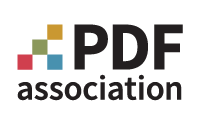
Why Kubernetes Support Matters in the Modern Enterprise World
Excerpt: Enterprises need new tools to manage their high performance applications, and Kubernetes has emerged as the most popular container orchestration standard for modern deployment architectures.
About the author:

Contents
Application design shifted quite dramatically with the rise of cloud computing. As organizations embrace these services, how software is built morphs from a monolithic design to distributed containers and microservices. Therefore, enterprises need new tools to manage their high performance applications, and Kubernetes has emerged as the most popular container orchestration standard for modern deployment architectures.
Traditionally, applications were created in a monolithic fashion, one large block of code that ran on a central server. With the move to cloud came a shift to containers and microservices, which breaks processing up into small pieces that are compiled dynamically on many different systems.
Kubernetes Provides Stability
Once these newly designed applications are finished, a business needs to manage them. A variety of options emerged as possible solutions. Designed in June 2014, Kubernetes is an open source container orchestration system. Conceived by Google, it automates cloud deployments, scales from small to large workloads; and ensures that different infrastructure elements work cooperatively, so corporations gain needed flexibility without sacrificing system availability.
Google handed Kubernetes caretaking over to the Cloud Native Computing Foundation (CNCF). The Linux Foundation formed CNCF in June 2015 with the goal of aligning different vendors’ container design and development initiatives. The early supporters included Cisco Systems Inc., Docker, Google, Huawei, IBM, Intel, Red Hat, and VMware, among others.
What Role Does Kubernetes Play?
Kubernetes eases application deployment by acting like a maestro and ensuring that different pieces of software work together similar to a symphony. The standard provides a common automation management framework for cloud applications, so corporations deliver software quickly and reliably. It was designed for applications that require high availability, high performance, and high throughput, in some cases generating millions of documents.
Portability is another benefit of the specification. Development work requiring that software be translated from one cloud platform, say Amazon Web Services to another, for instance Google Cloud Platform, shrinks because they both support common Application Programming Interfaces (APIs).
Kubernetes use skyrocketed as applications built with containers and microservices gained traction. As evidence, 92% of businesses now run containers in their production systems, and 83% deploy Kubernetes to manage those solutions.
The Growing Use of Digital Documents
Not surprisingly, document creation and management is one area where high performance, high availability infrastructure capabilities are important. With the move to digital transformation, the number of digital documents is growing at a rapid rate. Enterprises are replacing traditional paper creation and routing with digital alternatives for a variety of purposes: invoices, credit card statements, mobile boarding passes, legal archiving and more. Adding Kubernetes support to a PDF solution makes it simpler for organizations to build and manage software that runs on multiple clouds.
iText has been recognized as a global thought leader and innovator in PDF solutions, and our open source iText 7 PDF library can be embedded into document solution workflows for various industries and streamlines processing chores. A wide range of additional functionality is provided by add-ons to the iText 7 Core library, and the entire SDK is available as the iText 7 Suite.
Being an enterprise solution provider, we’ve spoken with many customers who are migrating to cloud infrastructure and platform services. To address their needs, we’ve made it easier to deploy our software on infrastructure such as (but not limited to) Amazon’s Elastic Kubernetes Service (EKS), with the iText 7 Suite and iText DITO both being available on the Amazon Marketplace.
With Kubernetes support, customers spend less time building interfaces from their applications to the system infrastructure and more on developing new features. As a result, they reap more value from their development investments.
If you are looking to learn more about microservices; you can download our white paper here.
Still have questions?
If you are interested in learning more or have additional questions.
If you are interested in learning more about iText 7 suite.
Original post: https://itextpdf.com/en/blog/itext-news/why-kubernetes-support-matters-modern-enterprise-world


